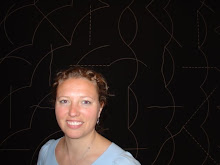I finished The Power of Place while drinking a glass
of German Riesling and sitting outside on Seattle’s sunniest spring afternoon
of 2011. I could smell my neighbor’s
lilacs and watch the baby ferns’ tops trying to uncurl. The place was spectacular. It was chilly, though, so I’m back inside
remembering the places I’ve read this fascinating treatise on geography. Stuffy airplane, eating pretzels. Living room chair with my feet up. In bed prying my eyes open. On the floor while stretching after my bike
ride. Local bar waiting for my dinner.
Harm de Blij did a fantastic job taking in the angles on
place. De Blij denies that the world is
flat. Depending upon what hemisphere,
what continent, what country, what city, what family, what gender, de Blij can
outline some of the terrain you’ll encounter.
It isn’t flat. De Blij does think
that globalization could smooth some of the rough edges, though. That’s an interesting point of view.
There are a lot of prejudices that de Blij brings to his
work. The one I found most problematic
was that of religion. De Blij does not
value religion at all; he essentially views them all as wholly similar and
detrimental. The second most troubling
aspect is his position on natural disasters.
His book was written after the world shocking 2004 tsunami in Thailand
and areas bordering the Indian Ocean but long before the earthquake in Haiti
and this year’s earthquake, tsunami, nuclear disaster in Japan. He faults human behavior. I have a more challenged view. Thirdly, de Blij is a political activist, who
has no qualms in giving his reader points of action, which, were they aligned
with my worldview, I would appreciate so much more.
What I can agree with is that being born and raised in de
Blij’s “core” has given me more than I have in fact been able to absorb. I cannot take in all the information to which
I have access. What I realize is that I
also cannot enter the “periphery” without my expectations and reality reflecting
more of the “core” than it does the “periphery.” It is with certain awe that I examine the
statement so often, weekly, monthly, by Jesus telling me that “to whom much is
given much is expected.” I understand
that much of my geography.
Beyond the easy parts of geography, “I look out my window
and see ____” (mountains, water, plains, desert, skyscrapers, huts, etc) de
Blij looks at things that are more challenging (industrial plants, warzones). In Seattle we’ve had our fourth or fifth
sunny day of the year. Other places
haven’t had so many days of rain in 2011.
But, as far as how many cases of malaria, typhoid, dengue flu, I’d say
there is good fortune in Seattle. We
grow more moss than we do mosquitoes. We
import more mangos than we receive asylum seekers from the countries who grow
the mangos. We largely practice religion
similarly, speak the same language, have ancestral ties to our neighbors and
enough food even so.
With all the hills I bike every day between my home and
downtown, Seattle has a pretty flat landscape according to de Blij. Should an earthquake come and wipe this slate
clean, as de Blij expects to happen, may my neighbors show me the grace of God,
and may my hands work diligently and with skill as I examine The Power of
Place: Geography, Destiny, and Globalization’s Rough Landscape.

No comments:
Post a Comment